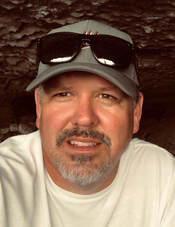Bridging Leadership Lessons from the Workplace and Those Experiences Shaping Today's Youth and Tomorrow's Leaders
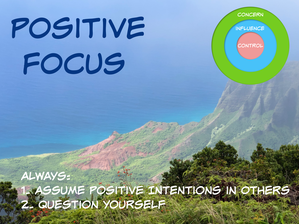
Have you ever had an opinion of a person but once you spent time with them you gained a better understanding and your opinion changed? Many times those opinions can be difficult to change - just open up your favorite social media app and check out any posts regarding the 2020 election!
Peter Senge wrote about Mental Models in his book, Fifth Discipline. Senge described Mental Models as “deeply ingrained assumptions, generalizations or even pictures or images that influence how we understand the world and how we take action.” The scary part about his description is the last part about how we act based upon those mental models. Acting out of a bias or possible false view of a person or situation can lead to potential failures and negative impacts to us and our customers. We are all guilty of this behavior at work, with friends, on social media. We can quickly establish a view of someone based upon Mental Models that have been created over time - the way people dress, the way people look, the way society promotes certain activities or how the auto market can be impacted by views on style or quality. Mental Models are not always wrong and in some situations may be accurate, but the potential for mistakes is always there. The point being is that we ALL have Mental Models whether we are aware of them or not. The challenge for us as engaged employees and community members, is to recognize those Mental Models and make sure our actions are not based solely upon those views but on actual data and information as it exists. In an interaction with another employee, it would be helpful to share the Mental Model that exists so they know up front what your perspective is and then it can be out and on the table. What if our Mental Model lies below the surface and we are unaware that they exist? We can end up contributing to conflict by making assumptions and then we base our response on those assumptions and not on the reality that exists. That is why we need self-reflection and the ability to critically challenge our ways of thinking. To be open to influence and engagement. Reflection is a skill that should be practiced. By bringing your mental models to the surface, you provide transparency and lay the foundation on which to build trust. Challenge your own perspective and search for your own biases and Mental Models that may exist. Ask yourself questions. Assume good intentions in others and that they are being forthright. By taking these approaches, you can engage in what Senge calls “learningful” conversations in an open environment where truth and understanding can be at the center of the discussion and not the defensiveness of blame or protecting a position. So often we avoid opportunities to change or grow because we limit ourselves to what is familiar to us - in how we think and act. Einstein said, “Our theories determine what we measure.” So during a conflict, instead of blaming someone else, ask yourself how your actions or thoughts contributed to the situation? Don’t let Mental Models restrict your ability to grow. You must seek them out, challenge their validity and share your findings with others. Using transparency to share your Mental Models to build trust with those you engage will truly help you make a difference Beyond Today.
1 Comment
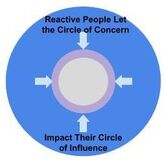
Stephen Covey wrote the timeless leadership book 7 Habits of Highly Effective People in 1989 and introduced the world to the concepts of Influence vs Concern and how your focus on these two circles impact your outlook on life and how you impact others. Later they evolved the concept to include an inner circle of Control.
The power of the circles can be summed up this way: If you focus on what you control instead of that for which you are concerned, you will expand your influence and positively impact others. Time spent in the circle of concern only leads to frustration as you have no control or influence to impact those areas of concern. Through your personal growth and development, you can expand your two inner circles. Gaining promotions and responsibility can expand what is in your control. Also, through leadership, values and demonstrating empathy for others you not only increase opportunities for success but to expand your circle of influence. I always tell my young athletes to not be concerned about playing time. The coach controls that. But what they can control is how hard they work, their attitude and the time they put in on their skill development. A coach will take notice and then reward them for their efforts. A player cannot control whether a teammate will pass them the ball. But they can control how they respond. Do they pout? Complain? Get mad? Get resentful? Or do you make sure you make the right pass? That you celebrate when someone else scores? Support and encourage your teammates? Be ready so when they do make the pass you reward their trust with a basket? Do you thank the passer? In other words, can you influence the behavior of a teammate by demonstrating what a good teammate looks like? A downside to expanding the inner circles is that inevitably it will also increase the circle of concern. As you increase the areas for which you have control and influence, there are more areas you see where you could help improve or that could benefit from your skills. But, if you do not have control or influence you only increase the amount of frustration which if not addressed will negatively impact your influence and could impact what you control. Do you want to have a greater impact? Then how do YOU expand your areas of influence? What skills can you develop? What insight is needed? Where is your value? What about YOU can you control and change? The power of the circles can be found in your work life and your personal life. You can view it as an individual or from the holistic perspective of your team? At work, you can control your skills and knowledge, your commitment and follow-thru, your communication and your attitude. You can’t control the work ethic of people around you, or decisions made by management or the timelines of other groups. So you must be successful with what you can control and find those areas where you can influence others. Can you submit a financial model to justify the expense of a new piece of capital? Can you Walk-a-MIle to gain understanding of those in another group to better understand why their timelines seem to slip? Can you take the time to find shared goals with other employees and find ways to work towards your mutual benefit? Making a difference in the lives of others can be found in the continuous expansion of your inner circles. By focusing on what is in your control you will expand your influence enabling you to positively impact others Beyond Today. |
AuthorTom Brown - a husband and a father who is simply trying to make a difference. Using my experience as a Manufacturing Executive to connect leadership from the boardroom to the hardwood to help teams grow and develop to make a difference in the lives of others. Archives
May 2024
Categories |
Proudly powered by Weebly

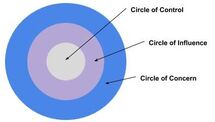
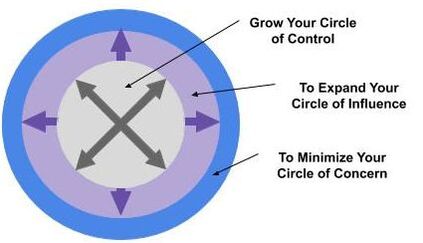
 RSS Feed
RSS Feed
